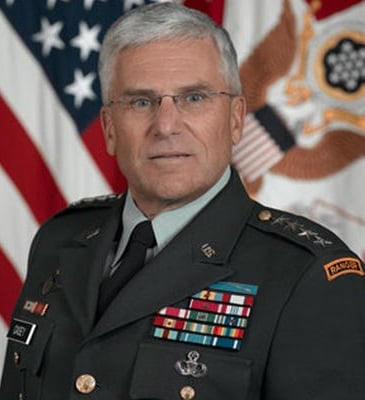Emerging leaders—accelerate your career and get to the next level!
Position yourself for future success by gaining deep insights into the C-suite to better understand what their challenges are and how they think. You’ll learn how to connect your day-to-day role with the purpose of your credit union, so you’ll be ready when the opportunity for advancement comes.
Under the guidance of 11 Cornell University faculty members, you will deepen your knowledge of what it takes to be a successful executive. Over the course of 9 MONTHS, 8 COURSES, and 8 LIVE-TAUGHT ONLINE SESSIONS, you will cover a curriculum grounded in research with fresh perspectives and insights from outside the industry. You can immediately apply these lessons to enhance your day-to-day work and contributions to the credit union.
In this course you will explore:
The CEO Mindset- Leading with a CEO Mindset
- Developing and Communicating Vision and Strategy
- Understanding Financial Statements
- Connecting the Numbers to Strategy and Performance
- Change, Disruption, and Growth.
- Brand Purpose
- Understanding Digital Marketing
- Harness the opportunities and avoid the pitfalls of digital technologies
The CCO Mindset
- Structuring Business Agreements for Success
- Embracing Basic Contract Principles and Guidelines
The CRO Mindset
- Identifying and Evaluating Risk
- Building Constructive Partnerships and Influencing Without Direct Authority
- Motivating People for High Performance
- Leading High Performance Teams
- Developing and Communicating Vision and Strategy
- Final Thoughts and Leading with a Growth Mindset
Learn more about each course and session by visiting our “Curriculum” tab. Questions? Email events@cues.org.
CUES Advanced Management Program Informational Webinar Playback
Explore how CUES Advanced Management Program from Cornell University will expand your strategic impact and position you for future leadership roles in this webinar playback.
Program Details
This emerging leader education program was designed to fit easily into your schedule. Highlights include:
- Program Length. This nine-month program runs from July 1, 2025 — April 30, 2026.
- Time Commitment. CUES Advanced Management Program consists of eight self-paced eCornell courses open for two-week intervals. Interspersed will be seven 90-minute Cornell faculty-led live online sessions.
- Learning Format. You will learn together with your class, but each student will receive their own login and participate from their own remote location, via a combination of live online meetings, interactive online discussions, audio recordings, videos, and independent study designed to provide practical experience and reflection.
Why Attend?
- Developed in partnership with Cornell University, this unique program is specific to the credit union industry and ONLY AVAILABLE THROUGH CUES.
- Complete the program in less than 1 year without travel.
- Network with other like-minded professionals in your cohort.
- Earn your Executive Certificate in Management and Leadership from Cornell University and CUES, and become part of the extensive Cornell University community network.
- Receive the Certified Credit Union Executive Manager (CEM) designation upon completion of all sessions and required coursework.
- Use this experience as a steppingstone to the prestigious CUES' CEO Institute program.
Need to convince your boss? Download our "Convince Your Boss" letter now!
Faculty
Below is the faculty for our 2024 program. Please check back for 2025 information.

Chekitan S. Dev
PROFESSOR
School of Hotel Administration, Cornell University

Allan M. Filipowicz
CLINICAL PROFESSOR
SC Johnson College of Business, Cornell University

Karan Girotra
CHARLES H. DYSON FAMILY PROFESSOR OF MANAGEMENT
Samuel Curtis Johnson Graduate School of Management

Elizabeth McClean
ASSOCIATE PROFESSOR
SC Johnson College of Business, Cornell University

Mark Underberg
ADJUNCT PROFESSOR OF LAW
Cornell Law School

Charles K. Whitehead
MYRON C. TAYLOR ALUMNI PROFESSOR OF BUSINESS LAW
Cornell Law School
Live Session Instructors

General George W. Casey, Jr.
DISTINGUISHED SENIOR LECTURER OF LEADERSHIP
Samuel Curtis Johnson Graduate School of Management

Vishal Gaur
EMERSON PROFESSOR OF MANUFACTURING MANAGEMENT, MPS PROGRAM DIRECTOR IN BUSINESS ANALYTICS, DEPARTMENT EDITOR, OPERATIONS MANAGEMENT DEPARTMENT, MANAGEMENT SCIENCE
Samuel Curtis Johnson Graduate School of Management
Curriculum
Program Orientation
Live-Taught Session: Leading with a CEO Mindset
Date & Time TBD
This session will begin with an introduction to Cornell University and this certificate program, followed by Leading with a CEO Mindset with General George W. Casey, JCB.
Course 1: Developing and Communicating Vision and Strategy
July 16–29, 2025
Organizations that instill a clear vision and an effective business strategy at all levels are far more likely to succeed in our increasingly volatile, uncertain, complex, and ambiguous (VUCA) world. But before you can effectively define and impart your vision and business strategy to your organization, you must analyze and have a comprehensive understanding of the various facets of your operating environment. In this course, you will explore effective ways to achieve these goals with General George W. Casey, Jr. You will objectively assess the three critical dimensions of your operating environment (internal, external, and competitive) using the VUCA index so you can identify potential vulnerabilities and opportunities for your organization. You will then identify the characteristics of an effective vision statement and outline a clear vision for your organization. Finally, you will outline a plan to instill your vision and business strategy in your organization.
Led by General George W. Casey, JCB
Course 2: The CFO Mindset—Understanding Financial Statements
August 13–26, 2025
Every organization’s finance function keeps detailed records of the daily transactions involved in running the organization. Periodically, they create reports that allow management, stakeholders and regulating authorities to have insight into the financial health of the organization. As a manager, you need to understand both the metrics that are reported in income statement, balance sheets, and cash flow statements, and how they relate to each other. You also need to understand how comparing numbers across your company, the industry, and from year to year, can help you assess the overall financial performance of the firm.
The in-depth review of sample case studies in this course will provide you with the tools you need to examine your own organization’s reports. As you make budgeting and investment decisions, your knowledge of how vital financial markers indicate relative health in the organization will help drive initiatives to meet your company’s financial goals.
Key Takeaways
- Understand the structure of the three principal financial statements: the income statement, the balance sheet, and the cash flow statement, and interpret the information found in these statements
- Identify online sources of financial information that can be used to conduct research on other publicly traded firms and industries
Live-Taught Session 2: The CFO Mindset—Connecting the Numbers to Strategy and Performance
Date & Time TBD
During this live session, the participants will connect with the faculty to go deeper into the key metrics and mindsets that a CFO links toward in the organization. For this session, the faculty will discuss some of the financial linkages that senior leaders need to be aware of to build understanding of the financial levers and strategies within their organization. We will also include credit union specific examples of the type of financial metrics that could be utilized to build dashboards and financial awareness of the organization’s performance.
Course 3: The COO Mindset—Change, Disruption, and Growth.
September 10–23, 2025
Change can be a highly profitable opportunity for growth, or it can sink a once-successful organization. How should you and your credit union prepare to adapt and even thrive in the face of change and disruption?
In this course, you will acquire the tools you need to evaluate change, disruption, and uncertainty in your industry. You will implement key frameworks designed to help you strategize in changing and uncertain environments. The skills you hone in this course will prepare you to succeed in dynamic market environments and think clearly about the future.
Of course, strategies for change risk failing if the organization as a whole is not willing or prepared to implement them. To pave the way for truly successful implementation of the strategies you devise, you will identify and mitigate critical internal challenges and resistance to change, thereby enabling your organization to eliminate roadblocks to growth.
Key Takeaways
- Assess change, disruption and uncertainty in your industry
- Evaluate how your organization can respond successfully to change and devise appropriate strategies to do so
- Identify and mitigate challenges to change within your organization
Live-Taught Session 3: The COO Mindset
Date & Time TBD
For this live session, professor Vishal Gaur will give an overview of how operations connects to the strategic alignment of the organization. He will share tools and techniques to grow the COO mindset of a leader in thinking about the operational and supply chain side of the organization’s strategy. He will then conduct a breakout session to give credit union leaders the opportunity to share some of the key operational ideas and metrics that can impact the strategic goals of a credit union regarding day-to-day operations and expansion.
Course 4: Brand Purpose
October 8–21, 2025
In this course, you will evaluate your brand and define actions you can take to enhance your brand's performance. You will start by exploring the elements that make some brands great, why some brands garner premium consideration, and, as appropriate, how to improve a brand. You will work to create a great brand purpose and learn how to monitor the market to support the longevity of your brand by analyzing the impact of trends on your brand. You will also assess and strengthen your brand's mission, vision, and values. By the end of this course, you will have a strong vision, mission, a list of values for your brand and strategies to propel your brand forward.
Key Takeaways
- Develop a plan to maximize your brand's volume, price, satisfaction, and repurchase premiums
- Analyze market trends to identify the most significant challenges and opportunities for your brand
- Assess your brand readiness to address market challenges and opportunities
- Define the building blocks of brand purpose: vision, mission, and values
Live-Taught Session 4: The CMO Mindset—Brand Purpose
Date & Time TBD
This session provides a clear overview of the digital marketing world. Discover how players such as ad networks, demand-side platforms and data management platforms interact with advertisers, agencies and publishers. Then learn how to use time-proven frameworks to assess your customers' needs and identify your primary marketing objectives. Once you've put that all together, you'll learn how to evaluate the performance of digital marketing campaigns.
Course 5: AI and Digital Technology: Opportunities and Pitfalls
November 12–25, 2025
As new digital technologies become embedded in business operations, there are more questions than answers for many leaders. How can you harness the power of digital technologies to help your credit union thrive without falling into pitfalls along the way?
In this course, you will gain a foundation in a number of technological advances. You will start by discussing ways that technologies can improve your personal and professional life, including ways to produce work more smoothly, quickly, and effectively. You will also explore ways that technologies fail to deliver on promised results and access methods to prepare your team to benefit from digital technologies. By the end of this course, you will understand ways to harness the opportunities and avoid the pitfalls of digital technologies.
Key Takeaways
- Understand advances in digital technology
- Assess examples of digital technologies that have had positive impacts and relate them to an opportunity mode
- Assess examples of digital technologies that have had negative impacts and relate them to a failure mode
- Determine the readiness of you and your team members to benefit from digital technology
Live-Taught Session 5: AI and Business Transformation
Date & Time TBD
The CIO at the credit union no longer is solely responsible for maintaining technology and making the organization’s systems faster. Today the CIO plays a critical role in shifting the credit union toward a more flexible, modular system that allows it to roll out and change services at a previously unthinkable pace. They help create flexible, member-centric features off of nimble, cloud-based platforms that can be enhanced quickly and continuously. The CIO enables even modest-sized organizations keep up with the rapid pace of change in Fintechs.
In this session, you will learn best practices for gathering and using member data to shape services, improve member experience, and enhance engagement.
Course 6: The CCO Mindset—Structuring Business Agreements for Success
January 7–20, 2026
Contracts are often written by legal professionals, but the best business deals are ones worked out collaboratively by people who know their business operations intimately.
This course will help you gain a seat at the negotiating table, familiarizing you with legal terms and concepts involved in the business deals. You’ll learn how to collaborate with legal counsel and help negotiating parties address information gaps to reach agreement.
With content provided by two Cornell Law School professors and two practicing corporate attorneys this course is rich with practical video content and a course project that’s designed to help you apply what you’ve learned to your work situation.
- Analyze the structure of contracts
- Embrace basic contract principles and guidelines
- Evaluate how contract provisions address information gaps and assign risk in a business agreement
- Prepare for effective use of representations, warranties and covenants in contracts
- Assess the benefits and challenges associated with post-closing price adjustments
Live-Taught Session 6: The CRO Mindset—The Relationship between the CRO and Legal Counsel
Date & Time TBD
In this session you will examine the critical relationship between the CRO and legal counsel and how best to establish an effective relationship with both inhouse and external counsel and how to work with legal professionals to navigate legal obstacles and accomplish business goals
Course 7: The CHRO Mindset—Motivating People for High Performance
February 11–24, 2026
Leaders are responsible for encouraging the highest possible performance from their employees. Most leaders recognize that motivation is a key driver of high performance. Few leaders are skilled at choosing the right combination of approaches and tools to motivate all of their people. Not all individuals are motivated by the same things, and some might be demotivated by the same conditions or incentives that motivate others. This session prepares you to analyze performance problems and assess whether they actually can be attributed to a lack of motivation or to one of several other root causes.
You will learn how to increase the factors that do motivate people and improve workplace performance. You will also use the three primary drivers of human motivation to foster better performance on the job.
Key Takeaways
- Identify your personal primary driver for motivation
- Conduct a root-cause analysis for an individual with performance gaps
- Evaluate factors that undermine employee motivation and engagement in your organization
- Use the three critical primary motivation drivers to tailor your approach to motivation
- Enhance the conditions for an individual that make optimal use of that person’s key motivation driver
Live-Taught Session 7: The CHRO Mindset—Leading High Performance Teams
Date & Time TBD
During this session, the focus will be on the human capital development area of the organization’s strategy. One of the key elements of successful leaders is their ability to recruit, retain and develop their talent. The session will focus on the tools and techniques that leaders need to deploy to develop their talent and to position the organization’s teams to be high performing. The faculty will share techniques to increase engagement and innovation within the organization linked to team leadership.
Course 8: Future Looking Skills—Preparing for the Future
March 11–24, 2026
In our VUCA world, it is easy to feel weighed down by daily issues. You can become so consumed by the difficulties of the present moment that you neglect to look ahead and analyze your larger mission. Yet as a leader, you have to be able to step back from the challenges that each day brings and assess the big picture. You have to help your people envision what the future looks like. Even the most skilled leaders agree that this is not easy. However, there are concrete measures you can take to prepare for future success.
In this course, you will learn how to develop a plan to evaluate your organization's ability to accomplish its vision and strategy. You will apply Lewin's three-stage model of change to enable your organization's continuous adaptation and devise a plan that demonstrates how you will sustain progress. Finally, you will apply the read, exercise, sleep, and think (REST) model to take care of yourself and remain effective as a leader.
Key Takeaways
- Conduct continuous assessment and adaptation
- Plan for sustained momentum
- Prepare for what you can't control
- Take care of yourself — REST — to remain effective as a leader
Live-Taught Session 8—Final Thoughts: What is Your Mindset? How to Lead Change
Date & Time TBD
For this final session and wrap, the faculty will introduce tools and techniques on how to pull all the skills and techniques the participants have learned during the program to drive change. The faculty will discuss how to experiment individually and organizationally to drive change and how to potentially overcome some of the initial barriers to change that may present themselves when you are trying new things. We will wrap up this session with a virtual graduation ceremony from the program.
Information You Should Know
Credits & Certificates Earned
Students who attend all sessions and complete required course work:
- Receive an Executive Certificate in Management and Leadership from Cornell University and CUES
- Earn the prestigious Certified Credit Union Executive Manager (CEM) designation
- Earn 6.4 CEUs upon completion of the program.
Course Time Commitment
CUES Advanced Management Program runs from July 1, 2025 - April 30, 2026 and is delivered over the course of two semesters. During that time, you’ll take eight eCornell courses at your own pace within a two-week time frame. They are interspersed with seven 90-minute Cornell faculty-led live online sessions.
Live sessions will be recorded and available for playback if you miss a session.
Who should attend this certificate program?
CUES has partnered with Cornell University to meet the development needs of high potential/high performing credit union staff—particularly the key managers, directors, AVPs and VPs at your organization.
What is CUES’ cancellation policy?
ALL CANCELLATIONS MUST BE IN WRITING. (cues@cues.org)
- Prior to 60 days – full refund
- 31-60 days before start of event – 50% refund
- 0-30 days before start of event – no refunds or credits for future events given
- Due to financial obligations incurred by CUES, no refunds or credits will be issued on cancellation requests less than 30 days prior to the start of the event.
- Substitute attendees are welcome, subject to eligibility.
CUES reserves the right to cancel or reschedule the event due to unforeseen circumstances, and will refund fees if the event is rescheduled or location is changed and you are unable to attend.
About eCornell
Ivy League Curricula and Top-Ranked Faculty
eCornell is Cornell University’s online learning platform, which provides online professional and executive development to students around the world. eCornell courses are all developed by Cornell University faculty, and often include practical insights from other industry experts. All eCornell course content comes from top-rated programs with proven curricula.
Expert Led, with Structured Flexibility
eCornell courses are online and expert led with structured flexibility. Courses are facilitated by subject-matter experts, who will guide you, challenge you, and help you apply the course concepts to your real-world, on-the-job circumstances. Each course has a defined start and end date, but is designed to accommodate the schedules of busy professionals and allow students to complete their work at the times that work best for them, daytime, evening, or weekends.
Start and End Dates Drive Completion
A critical part of successful self-directed learning is to have a finish line, so eCornell courses have defined start dates and end dates. Most eCornell courses take about six to eight hours to complete, over a two-week period.
Interaction & Collaboration
As an eCornell student, you are never alone in your course. You are part of a cohort of other credit union staff members from across North America. Required discussions play an important part in your course, giving you and your classmates the opportunity to share and exchange your own experiences, best practices, perspectives, and examples. All this shared learning is facilitated by an instructor who brings both subject-matter expertise and real-world experience. Your interaction with peers from different organizations, and backgrounds fosters collaboration, networking, and a lot of practical, shared learning.
Emphasis on Practice and Application
The ability for you to interact with expert instructors, to ask questions and receive answers, and to learn with—and from—other participants keeps the learning interesting, practical, and above all, relevant to your work.
And there’s one more key component: practice opportunities.
Most eCornell courses include a project, which challenges you to apply the course concepts to your own organization. Others include interactive scenarios, simulations, and other engaging practice activities. All courses include tools, techniques, or job aids that you can put to immediate use in your work.
Every certificate program and course is developed with very tangible outcomes in mind. To eCornell, it’s not enough if a course helps you to know something, or even to understand it. Programs are designed to go much further, to equip you to do something—better or for the first time—at your job.
We ask, “after completing this course, what will participants be able to analyze, identify, assess, implement, calculate, or influence that they couldn’t before?” eCornell courses draw on a variety of components to provide this practical learning:
- Discussions
- Projects
- Practice activities
- Short videos
- Interviews with industry experts
- Online tools and downloadable resources
- Case studies and examples
- The guidance of an instructor
The eCornell approach positions you as an active participant in the learning process, allowing you to build the necessary problem-solving skills at your own pace and in your own style to confront the real challenges you face on the job and in life.
DATES
July 1, 2025 — April 30, 2026
U/U+ MEMBER PRICE
$8,095![]() $10,930 CAD
$10,930 CAD
INDIVIDUAL MEMBER PRICE
$8,495![]() $11,470 CAD
$11,470 CAD
NON-MEMBER PRICE
$9,295![]() $12,550 CAD
$12,550 CAD
Ask Us a Question
Let us know if you have a specific question or comment regarding this program.
Join the Emerging Leader Community—Raise Your Hand!
Are you an emerging leader ready to grow your career? We're building a community just for you. Get early access to resources, expert insights, and networking opportunities. Sign up now to stay informed!
